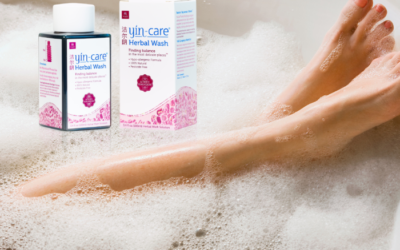Wellness with Self-Care
“Love yourself first and everything else falls into line. You really have to love yourself to get anything done in this world.” – Lucille Ball
Self-Compassion – Be Kind to Yourself
Self-compassion is part of mindfulness, kindness, and meditation; however, it is more dynamic. Self-compassion is a way to push aside self-criticism, negative thoughts, and depressive attitudes that have been linked to unhappiness. By being kind to ourselves, as well as supportive and understanding, we can accept making a mistake or bad decision without beating ourselves up with constant judgment and negativity.
According to an article from the American Psychological Association Journal, people who practice self-compassion or self-love have been shown to have greater emotional intelligence, increased happiness, more social connections, and more life satisfaction. They have also been shown to have less anxiety, depression, shame, and fear of failing. Self-compassion basically enables us to validate our self-worth ourselves and not through the lens of others we usually depend on.
So How Do We Love Ourselves and Practice Self-Compassion?
1. You are part of a community of humans
We are not alone. We are connected to each other whether we feel connected or not. We exist together. By understanding all humans are flawed and make mistakes, understanding that we all have bad thoughts we can become connected in the need for compassion. Looking outside ourselves to this bigger picture helps us be kind to ourselves as well as others.
2. Practice mindfulness
Repeating negative thoughts, including judgments and criticisms of ourselves, is just giving in to our inner critic – causing us to live in a world of negative scripts that we write for ourselves. By practicing mindfulness, we are instead stopping and simply being aware of our negative thoughts instead of being affected by them. By being aware of our thoughts, without trying to change them, we have already made a difference in how we feel in response to them. By further questioning our inner critic’s motives for such thoughts, we can then practice compassion.
3. Give yourself the same compassion you would give a child
Sometimes, as adults, we forget we still need to feel nourished and secure. Imagine you were a child. What kind of compassion would you give yourself? Would you be kinder and more supportive? Would you treat yourself more gently and lovingly? Try thinking of yourself as only a child when next dealing with negative thoughts.
4. Allow yourself to make mistakes
When your inner voice calls you lazy or not productive enough is it true? Defining yourself because you make a mistake, feel unmotivated, or perceive that you are a bad person because you felt rejected for a moment. Awareness that other people also feel like this from time to time. Accepting these feelings and embracing that these are fleeting moments that will pass is important when giving yourself permission to be flawed.
5. Seek a coach or therapist
Sometimes we know what is best for ourselves, but self-compassion is something we cannot always grasp. Therapists can help you identify and deal with negative thoughts and feelings and give you tools to practice self-kindness to develop a more positive perspective of yourself.
Whatever steps you take to bring more self-compassion into your life, it will make you a happier and healthier person. Be kind to yourself and watch the negativity and judgment of your inner voice melt away.

Reflection and Motivation
Many of us struggle with setting intentions each year. We put pressure on ourselves to achieve goals that are either attainable or unattainable for whatever reason. What if this New Year you did something different? What if you promised yourself that you would be kinder to yourself, reflect on your positive contributions and achievements in your life instead of your failures? Possible? Using tools, such as vision boards or journaling to manifest future goals can jump-start much needed positive energy going forward.
Reflection
Often, we reflect on experiences by comparing ourselves to other people and then feeling disappointment for not measuring up to those whom we perceive to be successful. Such negative thoughts can diminish our own achievements and zap our motivation moving forward. Self-reflection on positive notes can counter-act such tendencies, be beneficial to our well-being, not to mention our motivation, energy, and mood.
Forgot about the big project at work at the beginning of the year that got you that promotion? Valentine’s day dinner you surprised your partner with? The family vacation you took last June? Lost those 5 pounds (even though you had planned on 10)? Sometimes simply savoring these moments and drawing their positive vibes into the present is a great way to remind yourself that life is actually OK.
Some tips when reflecting:
- Write it down – sometimes seeing is believing.
- Spend time in nature – connecting with nature can help connect to ourselves without distraction.
- Track your habits – watching the progress towards a goal can be rewarding and motivating as well.
- Reflect on something that you have set a benchmark for success on your terms.
- Appreciate yourself and write down why. Sometimes you will get caught up in survival mode or negativity may catch you off guard. Keep a list handy to remind yourself it is one day, one mistake, one moment. It doesn’t define who you are or invalidate your worth.
Motivation
Motivate yourself with positive energy. Mindfulness can help you focus on the present moment. Do one thing at a time. Visualize your happy place, your goal, and your future. Use a vision board to manifest your desires. Breathe.
These can help energize you into the next year. We need energy and motivation to improve ourselves, meet our goals and deadlines, and support overall wellness throughout the year.
A few ways to stay motivated:
- Laugh more, smile more. Sometimes simple happiness is all you need to feel more energetic.
- Stay hydrated. Drink water throughout the day. It will make your body feel fresh and healthy.
- Connect with nature. Even 20 minutes per day can help renew creativity and recharge your mind.
- Take a nap or meditate. Even 15 to 20 minutes a day can turn fatigued into replenished energy.
- Stay active. Get your body moving and it will reward you with a burst of energy and wake you up.
- Listen to music that uplifts you or just makes you feel great.

Negative People Dragging You Down?
“The less you respond to negative people, the more peaceful your life will become.” – Buddha
We all know a few negative people. Perhaps they are the people behind the counter at the grocery store, a grouchy coworker, or even in our own family. We may think that these people’s negativity has no effect and we have the ability to move on after interacting with them. However, these people are toxic to our health and their negativity has serious health consequences.
How negative brain activity affects our health (even a small amount)
- Weakened immune system
- More prone to illness
- Can lead to a heart attack or stroke
- Affects intelligence and ability to think
- Compromises hippocampus neurons – affecting memory and reasoning
- Produces stress in the body
- Upset stomach and other digestion issues
- Mood issues.
Studies show that exposure to or experiencing constant negative emotions will trigger the amygdala in the brain, and the “fight or flight” stress response will be activated when the fear, anxiety, and helplessness of negativity becomes too much for the mind and body to handle. Chronic stress can lead to many health issues including cardiovascular, nervous system and reproductive system conditions. (1)
What to Do When Negative People Drag You Down
Say Goodbye
Life is too short to spend it with toxic people. If someone’s negativity is dragging you down, don’t wait to just disengage or at least distance yourself. While you may have no choice than to interact with co-workers and family members that project a lot of negativity – you can spend less time with them. Instead, seek out people with positive attitudes that inspire and encourage you.
Set Limits
For the people in your life that you cannot say goodbye to, don’t join in their negative emotions that suck you into a vortex of wallowing in their complaints and problems. Setting boundaries and distancing yourself from these kinds of people will help limit your exposure to their toxic behavior.
Choose Your Battles
Ever find yourself more negative around negative people? That is because those negative emotions can be contagious and suddenly you are sucked into their arguments. Don’t engage. Ignore negative comments. Don’t try changing their minds or pretending to agree with them, because those negative emotions will then sit inside of you. Better to tell them you need to work or do something, anything that avoids getting sucked into an argument shaped around their negativity.
Be Kind
Do you know what else is contagious? Smiling. Many studies have shown that the simple act of smiling can make others feel better and boost your own mood. Simple acts of kindness like bringing cookies to work, offering to help with something or just writing a positive email can do wonders to someone’s attitude. Perhaps the negative person in your life just needs more positivity.
Practice Self-Care
Sometimes negativity is unavoidable. Sometimes it is hard to shake off. Sometimes you are worn down from it. Take care of yourself. Pamper yourself. Spend time finding your center, your purpose, and reach back out to the positive emotions and a happier attitude. Eat the cake. Take a walk in the park. Binge watch a comedy on Netflix. Take a bath with lavender oil. Lavender has been shown to eliminate nervous tension, relaxes the body, relieves stress, and reduces emotional stress.
Whatever techniques you use to respond to negative people in your life, remember the bottom line is that you will be healthier, happier and more peaceful.

Herbs to Boost Your Mood
Are you feeling anxious lately? Winter blues lingering? Maybe, given the current climate in the world today, you feel a lack of control? All kinds of bad things can upset our daily mood and spirit. When that happens, it can prevent us from functioning as well as we would like. It can also take the joy out of things that once made us happy and content. Exercise and diet can have a huge impact on our mental well-being and often simply changing our thought patterns can help as well. But there are also a few herbs that can be beneficial in balancing the mind and body relieving occasional anxiousness and sadness.
Regular exercise is important because it releases endorphins – the feel-good hormones – which have a huge impact on improving mood. Diet is important as well. Eating a well-balanced diet, full of fruits and vegetables, along with healthy omega-3 fats can truly make the body and mind feel good.
Try to remain present and mindful in day to day activities. Re-hashing or mulling over negative events or worries may simply cause even more anxiety or depressed thoughts. Practice positive thinking and deep breathing, and try to let negative thoughts roll over you like a wave. Think about them, let them go, and move on. You may find this a helpful practice especially when it comes to things you cannot control such as violent events or negative politics happening throughout the world. The same applies to personal circumstances that are beyond your control, even though some can be positive although somewhat challenging such as a new job, a new baby, or moving into a new home.
The following herbs can help balance the mind, boost our mood, and calm ourselves, in moments of stress and anxiousness:
L-theanine or Green Tea – Helps boost GABA levels in your brain – which helps reduce anxiety.
St. John’s Wort – may elevate dopamine and serotonin levels
California Poppy – is a mild relaxant, aids with sleep, and has pain-relieving properties
Saffron – balances brain chemistry and helps with low mood and anxiousness
“You can’t always control what goes on outside. But you can always control what goes on inside.” – Wayne Dyer.
Reference
1 American Psychological Association. “Stress effects on the body.” http://www.apa.org/helpcenter/stress-body.aspx

Jemile earned a degree in Food Studies and Writing and has worked for almost 23 years in the medical and health industries. She has been a digital marketing consultant for Acupuncture Atlanta since 2011 as the social media manager and content manager. Writing has been a childhood dream for Jemile and writing daily for clients in the health, wellness, food, and art industries have been phenomenal. Jemile is originally from Brooklyn, NY, and lives in the Hudson Valley, NY. She lives with her husband, two daughters, her dog, and two fish. You can contact Jemile via Linkedin, her mom blog, or her website, lunaroseconsulting.com



